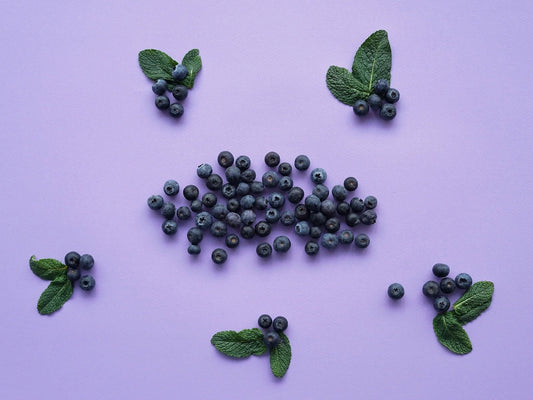Matcha – the green gold from Japan – has made a name for itself worldwide and is now an indispensable part of today's tea culture. If you've tried our Matcha Porridge Date Banana, you know that Matcha is not only incredibly delicious, but also super healthy. But what is all the matcha hype about? Why is this particular green tea from Japan on everyone's lips? We've taken a closer look at the green powder and its health benefits!
Matcha porridge from VERIVAL - discover it now!
The origin of matcha
Before we delve into the health benefits, let's take a brief tour of the history of matcha. Originally discovered in China, it was Japan that first made this green tea popular, particularly through the world-famous Japanese tea ceremony. This is not only a ritual, but also an expression of hospitality. The special tea leaves, called tencha, are dried after harvesting and then ground into a fine powder in granite stone mills.
The art of preparing matcha
In Japan, preparing matcha is an art form. First, a measured amount of matcha powder is taken using a bamboo spoon, or chashaku. Then, it is mixed with hot water in a matcha bowl. A bamboo whisk, or chasen, is used to whip the tea into a frothy beverage. The intensity varies – whether thin as Usucha or thick as Koicha, depending on your preference.
Matcha & Health
If you believe Japanese tradition, matcha is more than just a drink – it is a philosophy of life. But what makes matcha so special and how does our body benefit from it? Let's take a deep dive into the health benefits of matcha!
1. Antioxidant Powerhouse
Matcha is not only known for its bright green color, but also for its impressive amount of antioxidants. These are molecules that fight free radicals, which can damage cells and accelerate the aging process. One particularly powerful antioxidant that makes matcha so healthy is catechins. These include epigallocatechin gallate (EGCG), which has an anti-inflammatory effect and supports the immune system. It is also said to have a protective effect on our nerve cells.
2. The natural energy boost
Many wonder whether matcha contains caffeine, and the short answer is yes! However, the effect of the caffeine in green tea is different from what most of us know from coffee. The caffeine is absorbed more slowly into the bloodstream. This gives you a steady supply of energy over a longer period of time, rather than a quick high followed by a low, which often occurs with coffee.
The secret behind this slightly different caffeine experience lies in the harmonious interaction of caffeine with the amino acid L-theanine. While caffeine helps you to stay alert, L-theanine promotes relaxation. The result: an alert, focused, and calm state of mind. This way, you can concentrate for longer while staying relaxed.
3. Matcha is good for your metabolism
Are you looking for a natural metabolism booster? Matcha could be your answer. There are studies that suggest matcha can speed up your metabolism and increase fat burning. For example, one study tested how matcha affects the breakdown of body fat during a 30-minute walk. The results showed that matcha was able to improve fat loss. The reason for this is supposedly the caffeine and the amino acid EGCG it contains. [1]
It's no wonder that this green tea is becoming more and more common in fitness smoothies and nutrition plans in the UK.
4. Matcha is good for the mind and concentration
This is where L-theanine comes into play again. This amino acid is known to promote concentration and mental clarity. Matcha can help sharpen focus and strengthen memory. This makes it the ideal companion for long work days or intense study sessions. In a study conducted in Japan, it was shown that L-theanine can improve responsiveness and short-term memory. In addition, the amino acid is known to have a stress-reducing effect and to boost mood .[2]
From plant to cup: quality counts
The quality of matcha is crucial. Organic matcha guarantees that the tea has been grown without the use of chemicals or pesticides.
But it's not just how it's grown that matters, how it's processed is also crucial. The leaves are ground in the traditional way, on stone mills. The fine powder should be free of lumps and have a velvety green color. So the next time you stock up on your matcha, make sure you choose a high-quality matcha.
Conclusion: Matcha is a health booster
Matcha is more than just a trend and definitely deserves its healthy hype. Its catechins, especially the powerful antioxidant EGCG, protect against free radicals. The unique combination of caffeine and L-theanine provides long-lasting energy and improves mental clarity. Matcha also supports the metabolism and is ideal for fitness and health. In short, matcha is a valuable companion for body and mind. Whether you enjoy it pure, drink it as a matcha latte or eat it in your porridge, you are doing your body a power of good with this green wonder.
Sources
[1] Willems, M. E. T., Şahin, M. A., & Cook, M. D. (2018). Matcha Green Tea Drinks Enhance Fat Oxidation During Brisk Walking in Females. International journal of sport nutrition and exercise metabolism, 28 (5), 536–541. https://doi.org/10.1123/ijsnem.2017-0237
[2] Baba, Y., Inagaki, S., Nakagawa, S., Kaneko, T., Kobayashi, M., & Takihara, T. (2021). Effects of l-Theanine on Cognitive Function in Middle-Aged and Older Subjects: A Randomized Placebo-Controlled Study. Journal of Medicinal Food, 24 (4), 333–341. https://doi.org/10.1089/jmf.2020.4803
Frequently asked questions
Is matcha healthy to drink every day?
Yes, matcha is generally healthy when consumed in moderation. One cup of matcha per day provides a good amount of antioxidants, which can reduce the risk of diseases such as cancer and heart disease. Matcha also contains caffeine, which can boost concentration and energy.
Why is matcha so healthy?
Matcha is rich in antioxidants, which can protect cells from damage. It also contains L-theanine, an amino acid that can help you concentrate and relax. Matcha is also a good source of vitamins and minerals, including vitamins C, E and K, as well as magnesium and iron.
Which is healthier, coffee or matcha?
Both matcha and coffee can be part of a healthy diet when consumed in moderation. Matcha has a higher antioxidant content than coffee, while coffee contains more caffeine. In addition, matcha is an important source of L-theanine, which coffee is not.
























